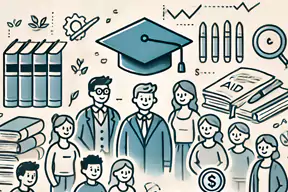The Lifelong Learning - Key Concepts course is designed to equip learners with essential knowledge, skills, and attitudes necessary for continuous personal and professional development. This course emphasizes the exploration of fundamental concepts, encourages critical thinking, fosters adaptability to change, and promotes a proactive approach to lifelong learning.
COURSE OBJECTIVES
This course aims to provide learners with a foundational understanding of key concepts relevant to lifelong learning. It encourages participants to critically examine their learning processes, explore various learning methods, and cultivate a growth mindset conducive to ongoing self-improvement. Key areas of focus include self-directed learning, information literacy, critical thinking, creativity, adaptability, and resilience.
COURSE OUTLINE
The Lifelong Learning - Key Concepts course covers the following essential areas:
- Self-Directed Learning
- Information Literacy
- Critical Thinking
- Creativity
- Adaptability
- Resilience
STUDENT ACQUISITIONS
Upon successful completion of the course, students will:
- Gain insight into the principles and practices of self-directed learning.
- Develop skills in information literacy, including the ability to evaluate and utilize diverse information sources effectively.
- Enhance critical thinking skills for analyzing, synthesizing, and evaluating information.
- Cultivate creativity through exploration, experimentation, and problem-solving.
- Adapt to change by developing a flexible mindset and embracing new challenges.
- Build resilience to overcome obstacles and setbacks encountered during the learning journey.
LEARNING METHODOLOGIES
The Lifelong Learning - Key Concepts course employs a variety of effective learning methodologies, including:
- Engaging with foundational concepts to promote understanding and retention.
- Encouraging active exploration and reflection on personal learning experiences.
- Facilitating practical application of key concepts through real-world scenarios and case studies.
- Promoting critical evaluation of information sources and perspectives.
- Fostering creative thinking through interactive exercises and problem-solving activities.
- Developing adaptive skills through simulations and role-playing exercises.
- Enhancing communication abilities for effective expression and sharing of ideas in diverse contexts.



